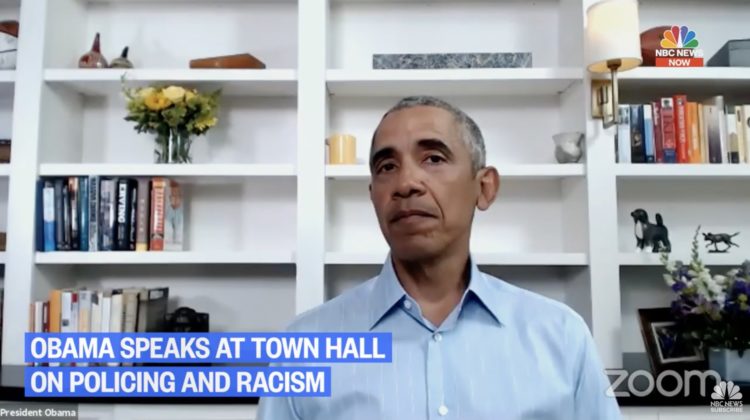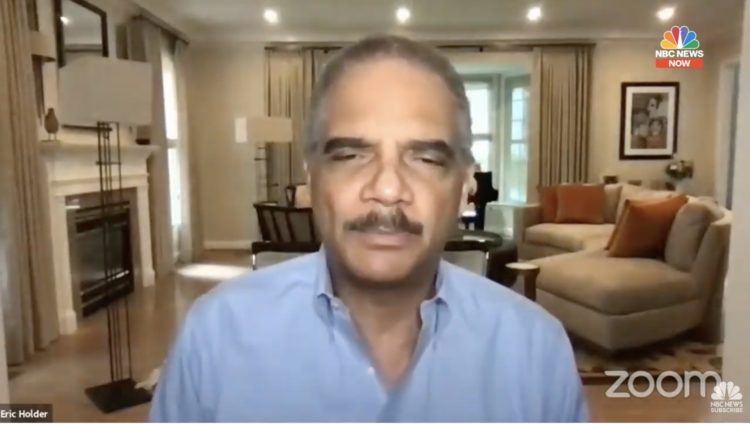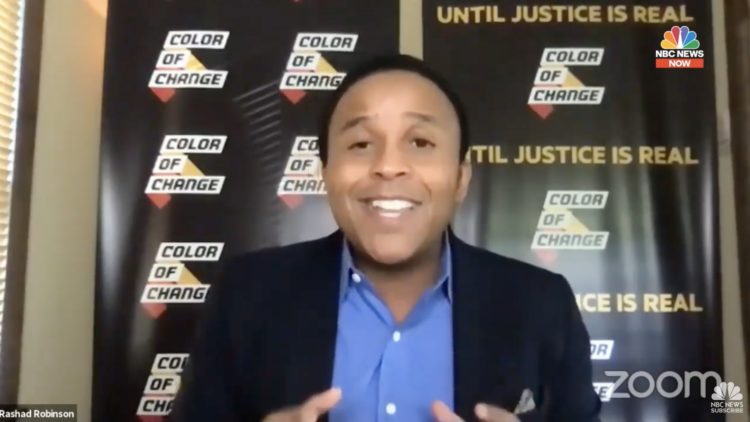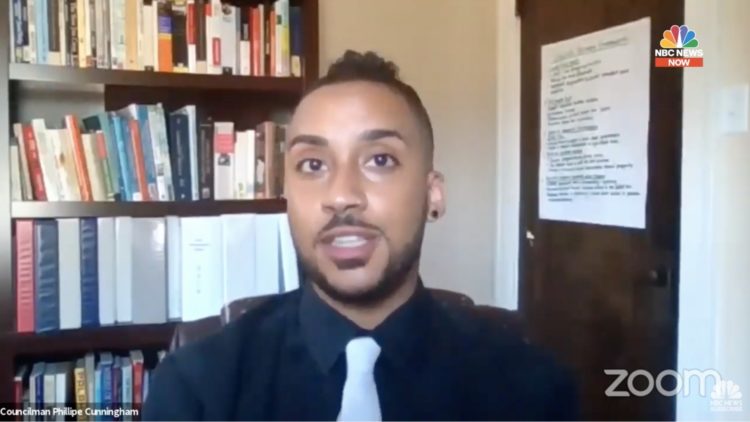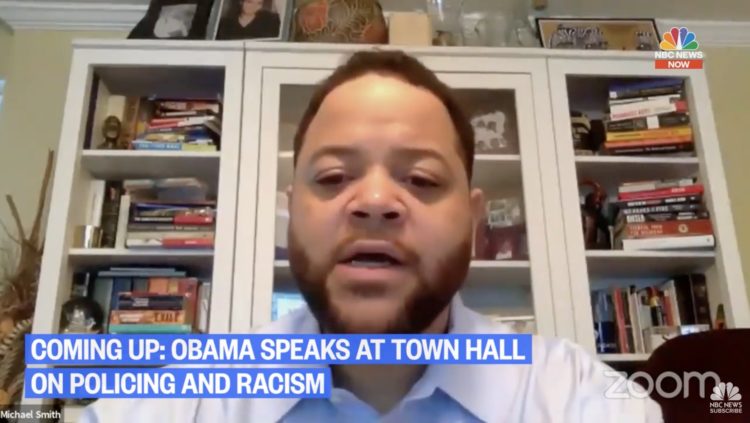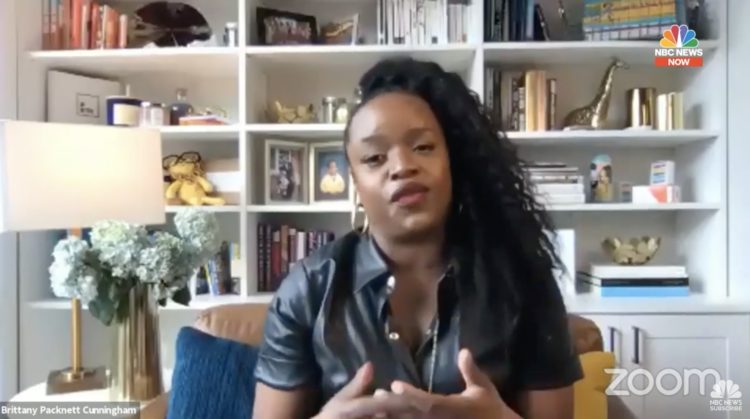Civil unrest continues in America tonight, but there was a bit of progress this afternoon, with the Minnesota Department of Human Rights confirming that they had launched an investigation into Minneapolis policing practices over the last decade.
That development, coupled with the confirmation that three more former police officers were charged in the death of George Floyd, and that a charge against Derek Chauvin, the former officer who pressed his knee to Mr. Floyd’s neck for nearly nine minutes, was upgraded, was seen as a sign that some of the protesters might soon calm down.
Throughout the uprising, many Americans have been looking to President Barack Obama for cues, ideas, and leadership. Today, the Obama Foundation organized a virtual Town Hall—in the form of a Zoom livestream—on “Reimagining Policing in the Wake of Continued Police Violence.”
President Obama, who urged young black people to “feel hopeful even as you may feel angry,” was joined by Former U.S. Attorney General Eric Holder, President of Color of Change Rashad Robinson, Minneapolis City Council Representative Phillipe Cunningham, and MBK Columbus Youth Leader Playon Patrick, in a conversation moderated by Campaign Zero co-founder Brittany Packnett Cunningham.
The Town Hall was hosted by the My Brother’s Keeper initiative, which Obama started in the wake of Trayvon Martin’s death. The idea back then was to break down barriers and expand opportunity for boys and young men of color. Many Americans still remember what Obama said in March 2012, after Martin’s death: “If I had a son, he’d look like Trayvon.”
America’s difficult history with race relations was a key element of Obama’s rise to power, and to the presidency, but when he was in the White House, many African Americans felt that he wasn’t doing enough for their community, and some black activists felt that Obama had failed Black Lives Matter as a movement.
In today’s Town Hall, he said he was about to turn 59 and repeated that he was inspired by young people in America. “We have seen in the last several weeks, the last few months, the kinds of epic changes and events in our country that are as profound as anything I’ve seen in my lifetime.” He began his talk by acknowledging that “although all of us have been experiencing pain, uncertainty, and disruption, some folks have been feeling it more than others.”
He said dreams matter, that young people should be able to learn and make mistakes. When he spoke about his daughters, nephews and nieces, and the limitless potential he sees in them, he added that he felt that they too should be able to live a life of joy without having to worry about what might happen when they walk out the door to go a store, or for a jog.
Obama insisted on local action, and on the role of mayors, county executives, and police chiefs. He added that reform had to take place in more than 19,000 American municipalities, in more than 18,000 local enforcement jurisdictions, and that “as activists and everyday citizens raise their voices, we need to be clear about where change is going to happen, and explain how we will bring about that change.”
35-year-old activist Brittany Packnett Cunningham, who moderated the conversation, spoke of intense grief, and of intense purpose. “We are here together to talk,” she said. “You may be watching this because you are experiencing that grief, and you need some community in which to do that.” She spoke of our ancestors “who did far more with far less” and reminded the audience that “we are here to get honest, to get clear, to get to work.”
Campaign Zero was formed in 2015 by Packnett Cunningham, a former member of Obama’s 21st Century Policing Task Force who had played a key role in the 2014 Ferguson protest, and other activists and researchers who set out to collect and publicize police department data and practices with a view to understanding which strategies and tactics might help to reduce police violence throughout the country. The Campaign Zero website states that “we can end police violence in America.”
At one point, towards the end of the Town Hall, Obama asked Packnett Cunningham to list the eight policy solutions that Campaign Zero has advocated. Obama was referring to Campaign Zero’s #8CantWait project, which is backed by data that shows that we can see a significant drop in killings—as much as 72%—if all eight policies are followed.
The policies are as follows: (1) Ban chokeholds and strangleholds; (2) Require de-escalation; (3) Require warning before shooting; (4) Exhaust all other means before shooting; (5) Duty to intervene and stop excessive force by other officers; (6) Ban shooting at moving vehicles; (7) Require use-of-force continuum; and (8) Require comprehensive reporting each time an officer uses forces or threatens to do so.
Obama closed the Town Hall by insisting on the importance of collecting data. He spoke of the need to change mentalities. “How responsive the police union is going to be in any circumstance, it’s going to go city by city. And it’s not easy, but I guess the point I am making is that I do think there is a police leadership that recognizes the need for change. But changing culture is hard.”

